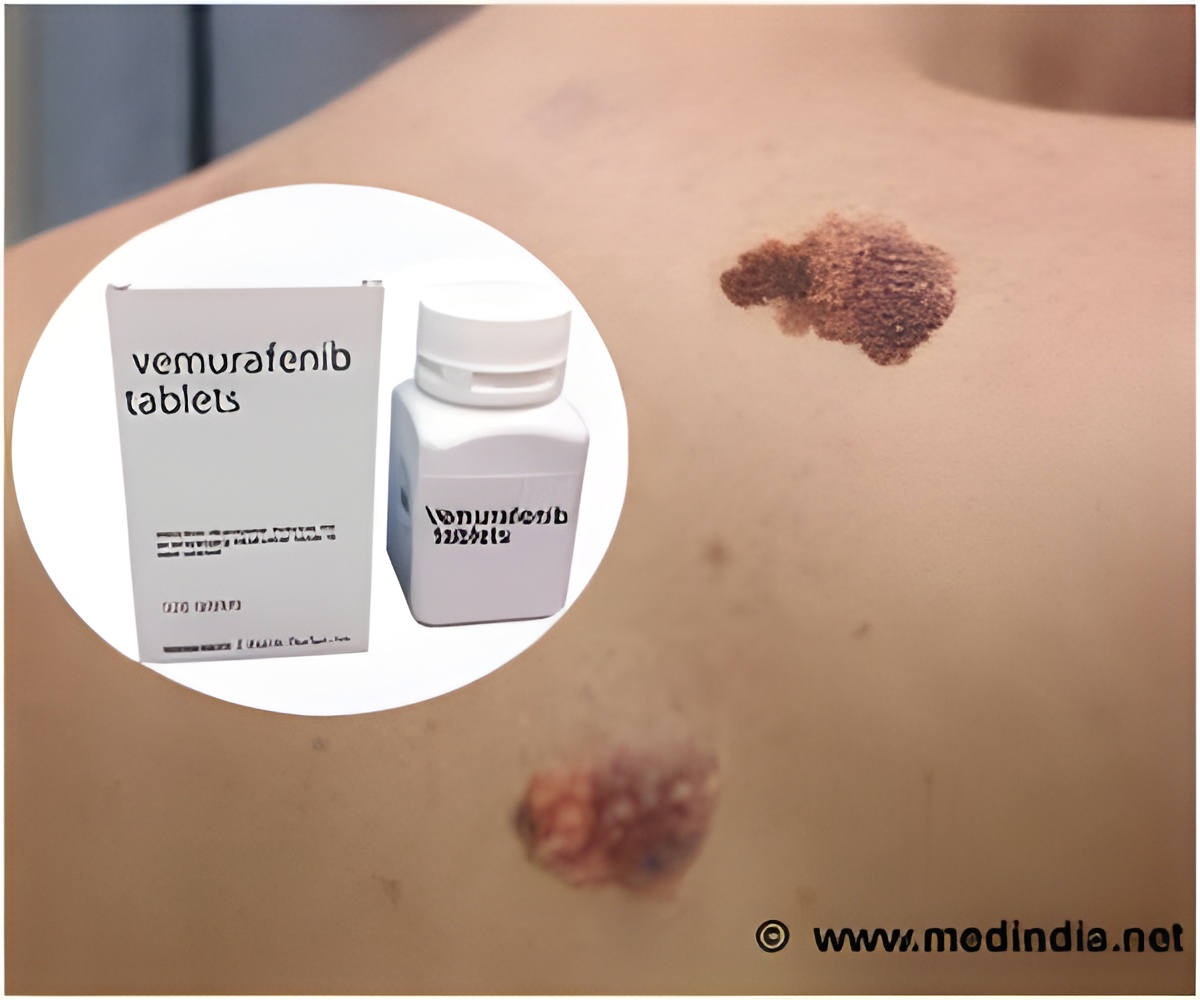Vemurafenib is a new oral drug that improves survival in advanced malignant melanoma.

Nearly 50% of malignant melanoma patients have a mutation called BRAF mutation. The BRAF protein plays a role in cell growth and survival. Mutation in the BRAF protein leads to excessive cell growth and cancer. Most of BRAF mutations are due to substitution of glutamic acid for valine at codon 600 (BRAF V600E). A test called the cobas 4800 BRAF V600 Mutation Test is used to diagnose the mutation.
Vemurafenib is an inhibitor of some mutated forms of BRAF protein. Thus, it is effective in malignant melanomas in people who show the presence of BRAF mutations.
In a small study, patients with advanced malignant melanoma who received prior treatment were followed up for a variable duration to a maximum of 20 months to study the overall response rate to the drug, the duration of response and overall survival. A total of 132 patients were included in the study.
The study found that nearly half the patients responded to treatment, most of them partially but 6% showed a complete response. The mean survival duration was an average of 15.9 months.
The most common side effects observed were joint pain, rash, increased sensitivity to sun, fatigue and loss of hair. A type of skin cancer called squamous cell carcinoma was diagnosed in 26% patients.
Reference:
Source-Medindia










